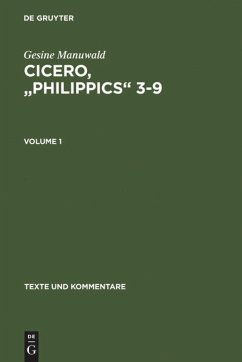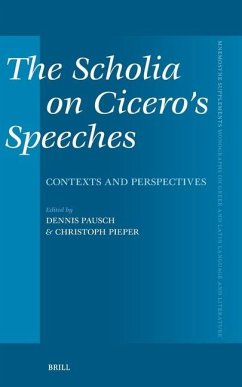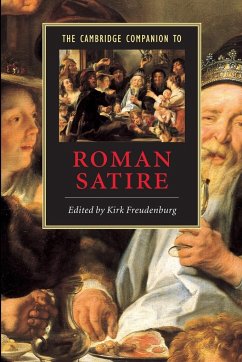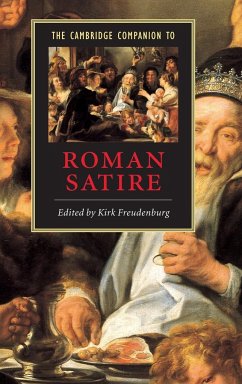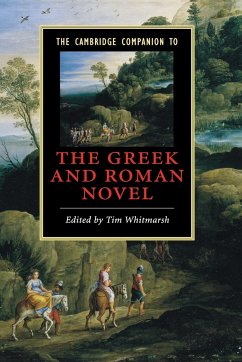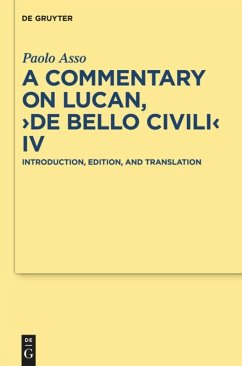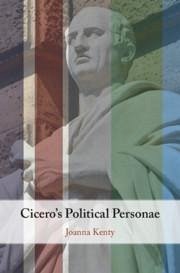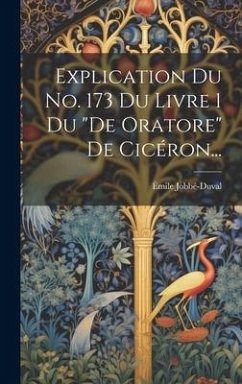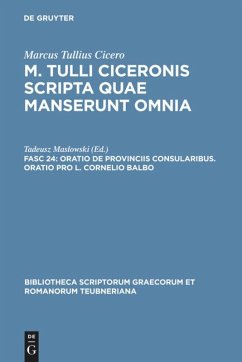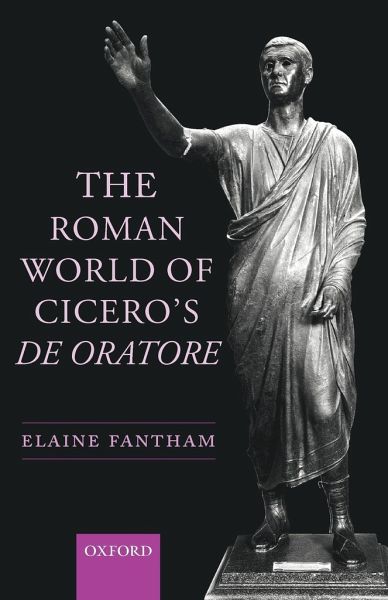
The Roman World of Cicero's de Oratore
Versandkostenfrei!
Versandfertig in 1-2 Wochen
80,99 €
inkl. MwSt.

PAYBACK Punkte
40 °P sammeln!
The Roman World of Cicero's De Oratore aims to provide an accessible study of Cicero's first and fullest dialogue, on the ideal orator-statesman. It illustrates the dialogue's achievement as a reflection of a civilized way of life and a brilliantly constructed literary unity, and considers the contribution made by Cicero's recommendations to the development of rhetoric and higher education at Rome. Because Cicero deliberately set his extended conversationin the generation of his childhood teachers, a study of the dialogue in its historical setting can show how the political and cultural life o...
The Roman World of Cicero's De Oratore aims to provide an accessible study of Cicero's first and fullest dialogue, on the ideal orator-statesman. It illustrates the dialogue's achievement as a reflection of a civilized way of life and a brilliantly constructed literary unity, and considers the contribution made by Cicero's recommendations to the development of rhetoric and higher education at Rome. Because Cicero deliberately set his extended conversation
in the generation of his childhood teachers, a study of the dialogue in its historical setting can show how the political and cultural life of this earlier period differed from Cicero's personal experience of the collapse of senatorial government, when the overwhelming power of the `first triumvirate' forced
him into political silence in the last decade of the republic. After an introductory chapter reviewing Cicero's position on return from exile, chapters include a comparative study of the careers of M. Antonius and L. Licinius Crassus, protagonists of the dialogue, a discussion of Cicero's response to Plato's criticisms of rhetoric in the Gorgias and Phaedrus, and his debt to Aristotle's Rhetoric, analysis of the dialogue's treatment of Roman civil law, existing Latin
literature and historical writing, Strabo's survey of the sources and application of humour, political eloquence in senate and contio, theories of diction and style, and the techniques of oral delivery. An epilogue looks briefly at Cicero's De re publica and Tacitus' Dialogus de oratoribus as reflections on the
transformation of oratory and free (if oligarchic) republican government by debate to meet the context of the new autocracy.
in the generation of his childhood teachers, a study of the dialogue in its historical setting can show how the political and cultural life of this earlier period differed from Cicero's personal experience of the collapse of senatorial government, when the overwhelming power of the `first triumvirate' forced
him into political silence in the last decade of the republic. After an introductory chapter reviewing Cicero's position on return from exile, chapters include a comparative study of the careers of M. Antonius and L. Licinius Crassus, protagonists of the dialogue, a discussion of Cicero's response to Plato's criticisms of rhetoric in the Gorgias and Phaedrus, and his debt to Aristotle's Rhetoric, analysis of the dialogue's treatment of Roman civil law, existing Latin
literature and historical writing, Strabo's survey of the sources and application of humour, political eloquence in senate and contio, theories of diction and style, and the techniques of oral delivery. An epilogue looks briefly at Cicero's De re publica and Tacitus' Dialogus de oratoribus as reflections on the
transformation of oratory and free (if oligarchic) republican government by debate to meet the context of the new autocracy.



